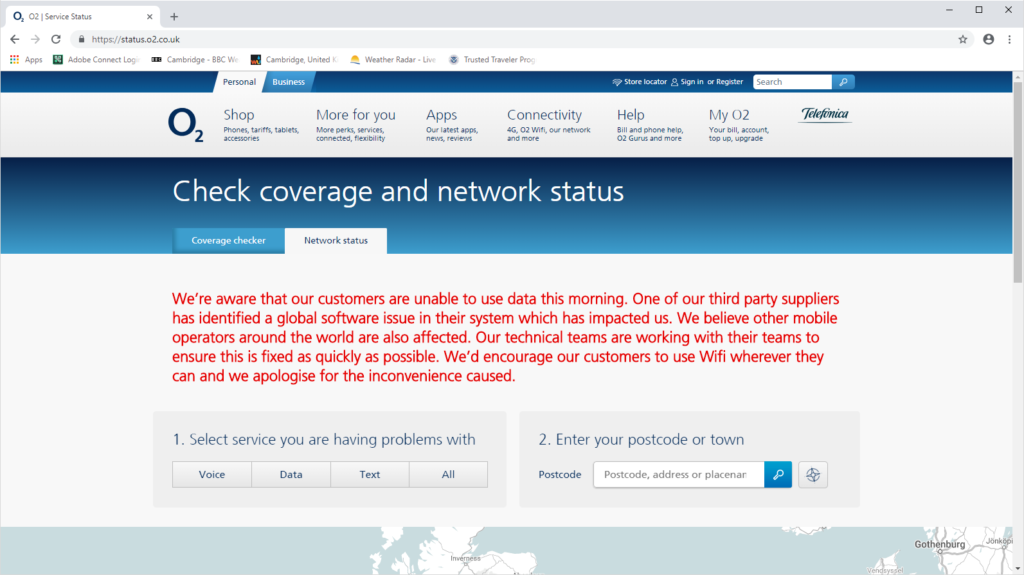
by Jennifer Daffron and Kelly Quantrill
Across the UK, over 25 million customers of the O2 network, including people signed up to Tesco Mobile, Sky, Lycamobile and GiffGaff, are forced to rely on WiFi connectivity for access to the internet as the mobile giant’s 4G network has gone dark.
This issue goes beyond personal access to the internet. Taxi drivers and Uber drivers are unable to connect with passengers, causing them to lose hundreds of pounds’ worth of work; Transport for London’s electronic timetable at bus stops and other public services have been affected; rail customers with tickets on their phones have been required to buy new train tickets in order to travel; and those navigating to new locations for client meetings have been unable to rely on Google Maps or phone clients explaining the difficulty. Customers using the O2 card on their laptops are incurring large data usage costs for their organisations. Early reports indicate that Apple Pay has also been affected.
The outage has been attributed to a ‘third party supplier [that] has identified a global software issue in their system which has impacted [the O2 network]”, highlighting the systemic issue of the digital supply chain.
O2 suffered two service downtimes in 2012. This was attributed to their infrastructure supplier, Ericsson, and decommissioning Ericsson equipment cost approximately £10 million. O2 still relies on Ericsson’s services, though it is not yet clear if this is the provider responsible for the outage.

Services and assets that were once held physically inhouse are transitioning to digitally outsourced vendors. The increasing digitisation of the supply chain increases the risks posed to network security to all those devices trusted by the network. The digitisation of physical assets lengthens the supply chain attack surface, increasing the potential for a single attack to ripple across multiple industries.



Leave a Reply